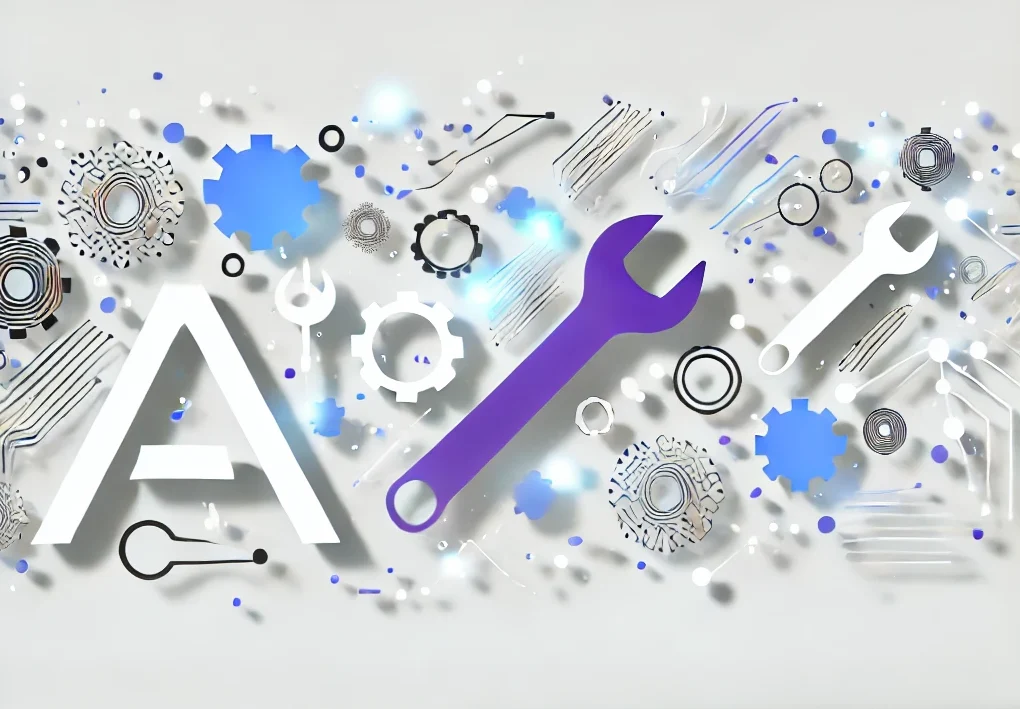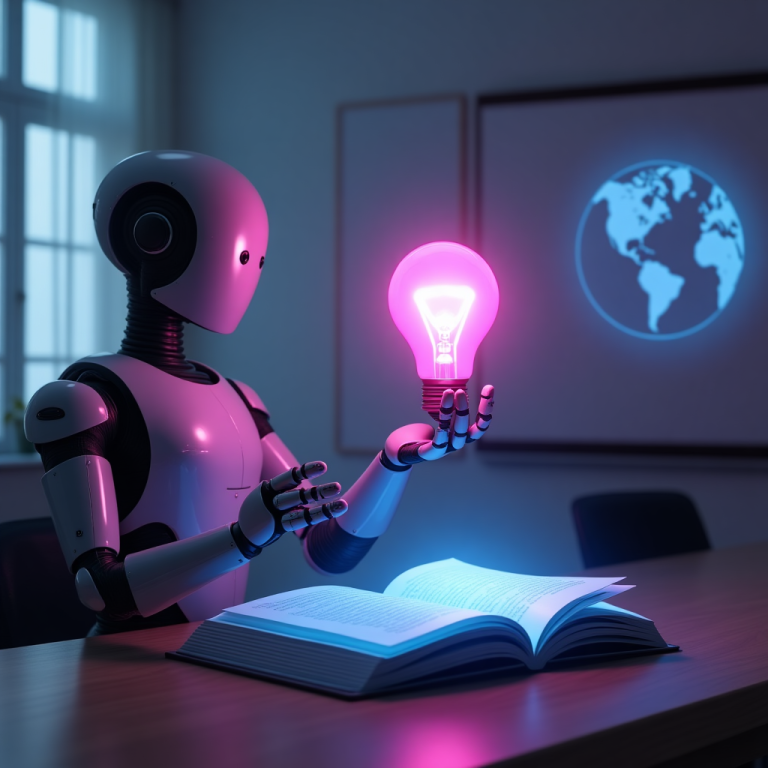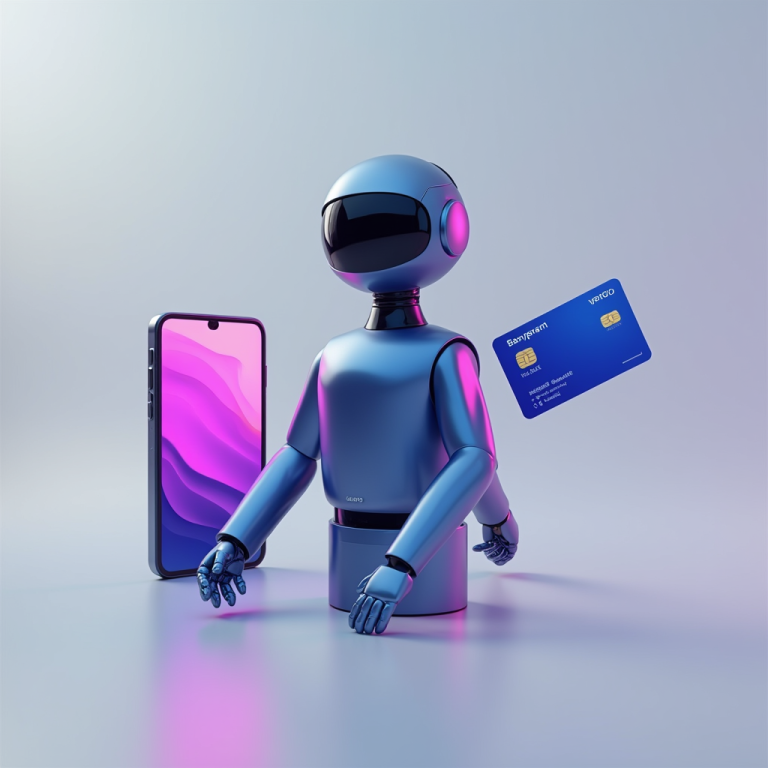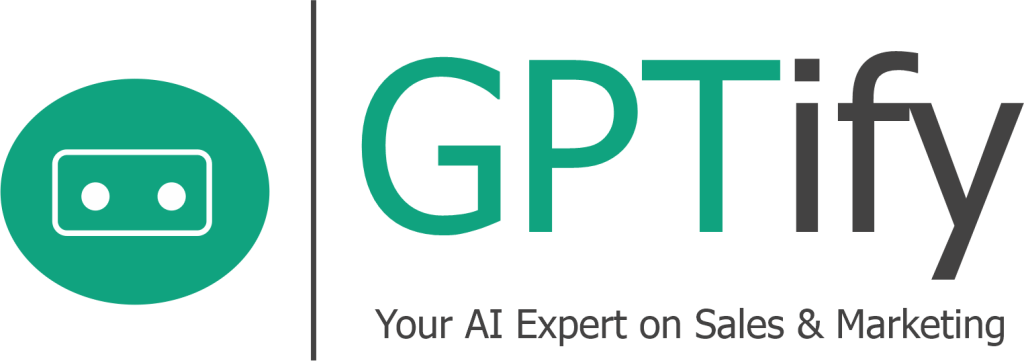We often come across the term “AI tool” in our moving digital era but what does it really mean and why is it important to us? Let’s delve into this subject and see how AI tools are revolutionizing our work routines and shaping our interactions, with technology for the better.
Table Of Contents
What are AI Tools?
An AI tool is software or a system powered by artificial intelligence designed to perform tasks that typically require human intelligence. These tasks range from simple administrative duties to more complex functions like data analysis, decision-making, and even creative processes.
In essence, AI tools simulate human cognitive functions such as learning, problem-solving, and pattern recognition. The difference is that they can process vast amounts of data at speeds far beyond human capabilities, providing insights and solutions in record time.
Whether it’s a virtual assistant, a predictive analytics tool, or an image generator, AI tools enhance our productivity, creativity, and efficiency in ways we couldn’t have imagined a few decades ago.
Everyday Examples of AI Tools
AI tools have quietly embedded themselves into many aspects of our daily routines. From virtual assistants like Siri and Alexa that understand natural language and respond to our queries, to the personalized recommendations we receive from platforms like Netflix and Amazon, AI tools are always at work behind the scenes. These tools analyze our preferences, behaviors, and interactions to offer customized suggestions that enhance our user experience.
But AI tools are not just limited to entertainment and e-commerce. They are revolutionizing industries across the board:
- Healthcare: AI tools help doctors diagnose illnesses more accurately by analyzing medical data, images, and patient history.
- Finance: AI-driven systems detect fraud, provide investment recommendations, and optimize financial operations.
- Manufacturing: AI tools predict equipment malfunctions, optimize production processes, and improve supply chain management.
The beauty of AI tools is their ability to adapt and improve over time, learning from the data they process through machine learning. As they handle more tasks and process more data, they become smarter and more efficient.
AI in Data Analysis
In today’s world, data is being generated at unprecedented rates, and AI tools have become indispensable in analyzing and interpreting this massive flow of information. Traditional methods of data analysis simply cannot keep up with the volume, velocity, and variety of big data. AI tools, on the other hand, can process vast datasets in mere seconds, identifying trends, correlations, and insights that might take human analysts weeks or even months to uncover.
For instance, AI tools in marketing can analyze customer behavior patterns, helping companies understand what drives consumer decisions and predicting future trends. This enables businesses to make more informed, data-driven decisions that can significantly enhance their performance.
The Creativity of AI Tools
One of the most fascinating developments in AI is its foray into the creative fields. AI tools are now being used to create art, music, and even literature. While they may not be winning awards like the Pulitzer Prize or the Grammys just yet, the creative output of AI is challenging our perceptions of what machines are capable of.
AI-generated artwork, such as pieces produced by tools like DALL·E, offers unique visual creations based on text prompts. Similarly, AI is composing music and writing short stories, exploring creative territories that were once considered the exclusive domain of human talent.
However, these creative endeavors raise important questions. Can AI truly be creative? Or is it simply mimicking patterns and trends it has learned from human creators? Regardless of the philosophical debate, the advancements in AI creativity are undeniably impressive and show no signs of slowing down.
Enhancing, Not Replacing, Human Intelligence
A common concern when discussing AI tools is whether they will eventually replace humans in the workplace. While AI tools can perform many tasks faster and more accurately than humans, it’s essential to recognize that these tools are designed to enhance human intelligence, not replace it.
AI excels at tasks that involve data processing, pattern recognition, and automation, but it still relies on human input for creativity, emotional intelligence, and strategic decision-making. In fact, AI tools can free up valuable time by handling mundane or repetitive tasks, allowing humans to focus on higher-level work that requires critical thinking and creativity.
For example, an AI writing assistant might suggest ways to improve grammar or sentence structure, but the core ideas, storytelling, and originality come from the human writer. In a corporate setting, AI tools can analyze data and generate reports, but it’s up to business leaders to interpret these insights and make strategic decisions.
Challenges and Ethical Considerations in AI Tool Usage
Despite the enormous potential of AI tools, they are not without challenges. AI systems are only as good as the data they are trained on. If the data is biased or incomplete, the AI tool can produce skewed or inaccurate results. This is particularly concerning in sensitive areas like healthcare or criminal justice, where biased AI decisions could have serious real-world consequences.
Additionally, the use of AI tools raises important privacy concerns. AI applications often require access to vast amounts of personal data to function effectively. Ensuring that this data is collected, stored, and used ethically is critical to maintaining trust in AI systems.
Another challenge is the “black box” dilemma, where AI systems—especially those that use machine learning—arrive at decisions in ways that are not easily explainable to humans. This lack of transparency can be problematic in fields like finance and healthcare, where understanding the reasoning behind a decision is crucial.
The Future of AI Tools
The future of AI tools looks incredibly promising. As technology continues to evolve, we can expect AI tools to become even more sophisticated, user-friendly, and ubiquitous across various industries. One exciting possibility is the development of AI tools that can understand and respond to human emotions with greater nuance, making human-AI interactions more natural and intuitive.
Additionally, AI-driven tools may soon be able to break down language barriers by providing real-time translations in global communications. We may also see AI systems taking on more complex organizational tasks, helping individuals manage their digital lives more effectively. Imagine an AI assistant that not only schedules meetings but also analyzes your work habits and suggests ways to improve productivity.
Beyond the workplace, AI tools could revolutionize education by providing personalized learning experiences tailored to each student’s strengths and weaknesses. These advancements will further blur the line between human and machine capabilities, offering new ways to collaborate with AI for personal and professional growth.
AI Tools as Partners in Innovation
AI tools are much more than futuristic gadgets—they are powerful allies in our quest to improve efficiency, foster creativity, and tackle complex challenges. They enhance our capabilities by performing tasks that would otherwise consume significant amounts of time and effort.
However, it’s important to remember that AI tools are just that—tools. They are designed to assist and augment human intelligence, not replace it. When used thoughtfully and ethically, AI tools have the potential to drive innovation, streamline processes, and empower individuals and organizations to achieve their goals.
As AI technology continues to evolve, platforms like Cubeo AI are making it easier for businesses and individuals alike to leverage AI capabilities without needing extensive technical knowledge. Cubeo AI empowers you to create your own personalized AI assistants tailored to your specific needs—whether it’s automating customer service, analyzing data, or creating a customized chatbot for your business.
Create an account with Cubeo AI today and start building your own AI tools to boost productivity, streamline tasks, and unlock new opportunities. Whether you’re a small business owner looking to optimize operations or a creative professional seeking innovative solutions, Cubeo AI has the perfect tools for you.



